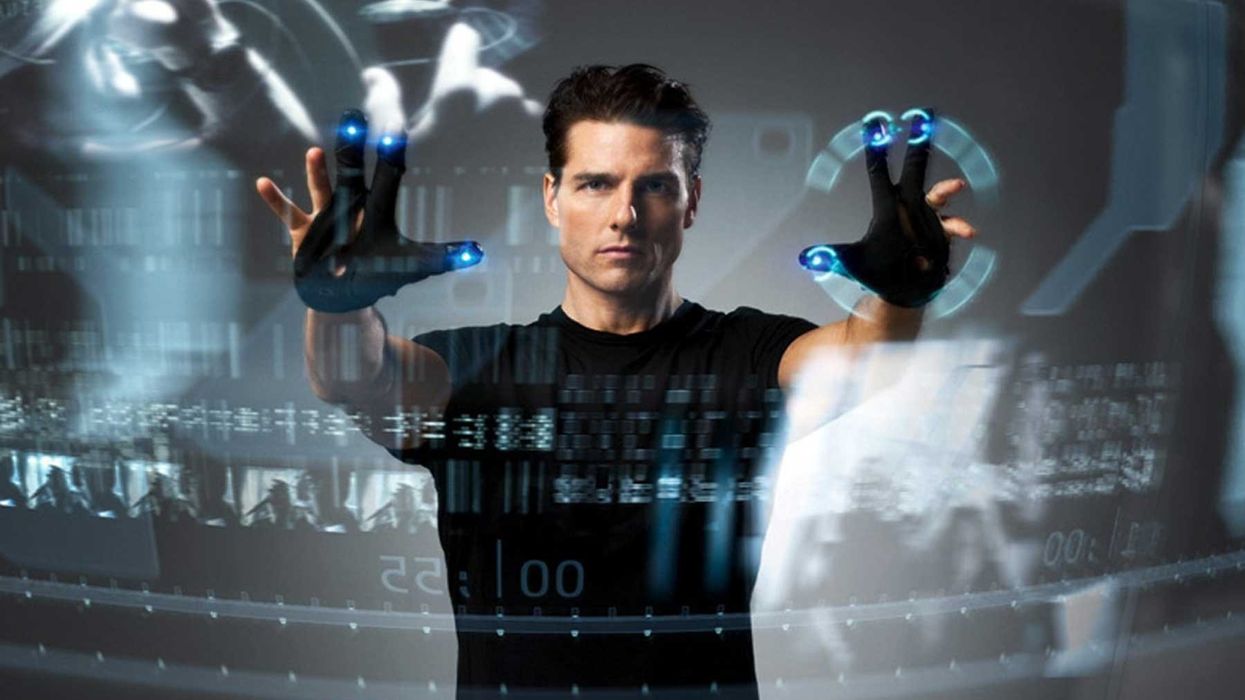Steven Spielberg and Surveillance: Who's Watching?
You're being watched. And Steven Spielberg knows it.

At the beginning of the new video essay below by Daniel Clarkson Fisher, we watch Edward Snowden lay it all out for us: the way that our slightest correspondences, web searches, and clicks are recorded and stored away, and could, if necessary, be used against us later. Who are they recorded by? Well, it's more likely a what, and the specific what is something we may never know. This is such a pervasive—if unexplored—reality at present that some filmmakers have begun to mine it for their work. On the documentary side, there's Citizenfour, of course, as well as Do Not Resist, online series Do Not Track, and others. In the world of fictional films, one of the most aggressive miners of this reality, says Fisher, is Steven Spielberg.
Fisher gives plenty of evidence for this assertion, beginning by showing how one of the foundations of Spielberg's work is a distrust of—and a willingness to lampoon—the government. We have Dan Akroyd's clownish official trampling on the lives of ordinary citizens in 1941, or Tom Hanks's hapless investigator in Catch Me If You Can, as examples of government officials who are perpetually hoodwinked by smarter civilians. The stance here is half the quintessentially American support of the "little guy," and half... something more subversive. Because Spielberg never gets bogged down in too many specifics about what aspect of government he's criticizing, the entertainment value of his films is preserved.
Because Spielberg never gets bogged down in too many specifics about what aspect of government he's criticizing, the entertainment value of his films is preserved.
From this position it's an easy vault, more or less, to an examination of surveillance, which is almost always presented in the most menacing terms possible. How about the mechanical creepy crawlies who take a read-out of past, present, or future criminals' minds in Minority Report? Or the malevolent scientists who try to take E.T. away from his new earthling friend for examination, which amounts to little more than professional gawking at a new and strange discovery? Of course, these depictions of surveillance don't have to be menacing: take, for example, somewhat foolish way Tom Hanks deals with security cameras in Terminal. (This last film is mighty timely, given that Hanks is stuck in the airport because he's, er-hem, denied entry. Could Spielberg have been predicting the future?) But Spielberg is, as the piece smartly points out, aware of the peculiar relationship between US citizens and their government, stating that one issue that was on his mind as he was planning Minority Report was "how many of our civil liberties are we going to give up because the federal government tells is we have to for the protection of the larger good..."
The larger question we have to consider as filmmakers is what the presence of surveillance as a story element does inside a film. How does it shape the mood? It can ratchet up the tension of a film, certainly, and it can also create a feeling of overarching paranoia that can add to the depth of any story. A story like Terminal, for instance, would be far less interesting without the notion that Hanks's traveler is constantly being watched, as if he were a prisoner of some kind. Similarly, a story like E.T. would have considerably lower stakes if the government's presence weren't felt perpetually as a silent threat throughout the film, making the central characters' relationship all the more poignant. And films like Bridge of Spies or Minority Report would collapse were it not for three words, which can have earth-shattering implications:
You're being watched.











